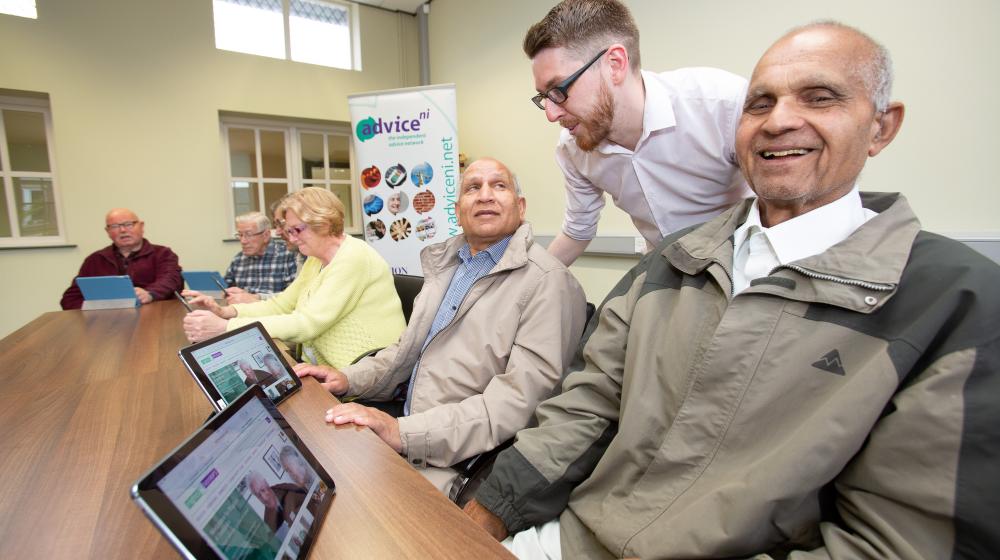
In the UK, 4.3 million people have zero basic digital skills and those with a registered disability are 4 times more likely not to be online.
Disability is more prevalent the older we get with 45% of those over state pension age registered disabled. In total, 28% of those aged 60+ are not online with the overwhelming reason being lack of motivation. Northern Ireland figures are higher than the rest of the UK; 19% of the total population do not use the Internet and within that statistic, 53% of those aged 65+ are non-Internet users.
The Department for Finance in Northern Ireland has responsibility for digital inclusion. The Department’s Making Lives Better – A Strategy for Digital Transformation of Public Services 2017-21 aims to provide better public services across Northern Ireland and identifies digital inclusion as one of its strategic enablers by, ‘giving citizens access, skills, motivation and trust to use digital services.’ It has progressed this through its Go On NI programme which highlights the benefits of being online and partners with the libraries to deliver digital skills sessions. The Department has also undertaken to establish a Digital Resilience Foundation Programme which will seek to address digital exclusion through a number of measures. However as Northern Ireland has had no devolved government in over two years it is unclear as to how this will be progressed.
In my travels to Australia and Japan, I hoped to identify and learn about innovative and implementable learning programmes which addressed the barriers to digital inclusion among older people, i.e. access to technology, the skills to use it, knowledge of the benefits (motivation), and knowing how to stay safe online (trust). In addition, I was keen to explore the delivery models of such programmes in order to understand how they were funded and sustained.